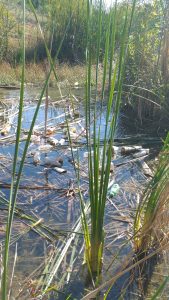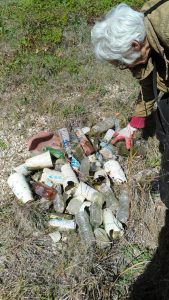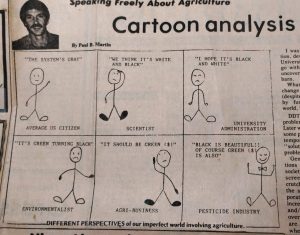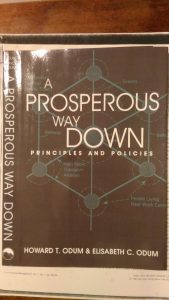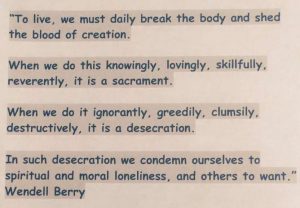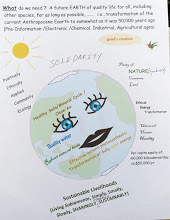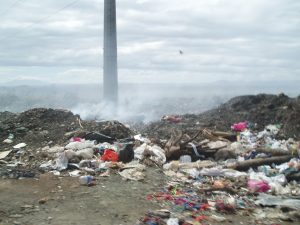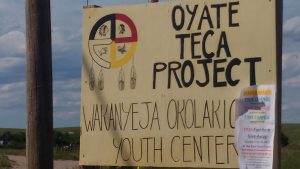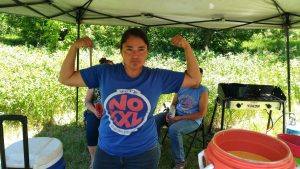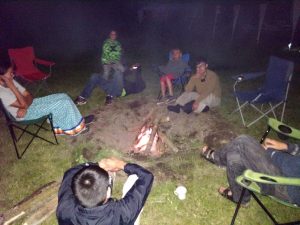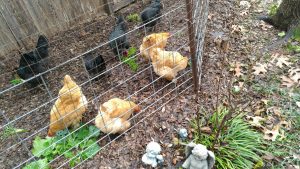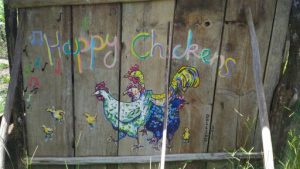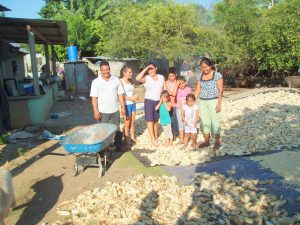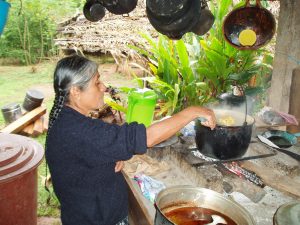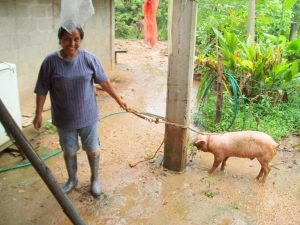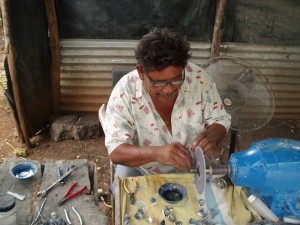Little Book on Applied Ecology/PEACE: Appendix I. SUSTAINABLE LIVELIHOODS:
**************************************************************
Appendix I. SUSTAINABLE LIVELIHOODS by paul bain martin
“All education is environmental education.” David Orr, Ecologist, Oberlin College
……………………………………
Background. The real crisis in the world is not in the financial economy and its current state, … but rather, the crises in Nature’s economy [severe human poverty and malnutrition (and other physical and mental/spiritual stresses on humans), watershed disruption, top soil loss, dead zones, desertification, loss of diversity and resilience, serious pollution, global climate change, etc., etc.] . Moreover, we are not providing our children (or most of the “adults” around them) with the educational foundation for developing critical thinking and ethical decision-making skills, particularly with regard to the serious long-term ecological challenges.
(Of course in the U.S.A. most of the problems with Nature’s economy are out of sight and mind because we have so much power and we suck tremendous resources from all over the world to a relatively small population here in North America–a process which masks and hides the really serious problems our kids and grandkids … will have to confront with insurmountable difficulties. Moreover, most of us live in such a virtual and unreal reality that whole lives of relative ignorance and procrastination are prevalent–versus what could be fulfilling and spiritually rich and active lives of wisely dealing with real problems.)
The bottom line is that, for the most part sustainable livelihoods do not exist in our very artificial conventional economic systems. Our current (and past) economies, and most of our livelihoods that come from these socio-political/economic systems, are destroying soils, water, the air we breathe, and the climate which sustains life–and these unsustainable livelihoods are doing away with the organisms and their ecological communities with which we as humans must associate for quality life. … They are destroying our humaneness, … our humanity!
Some of us believe we should earnestly begin to attempt to change this unpleasant situation we humans are creating as a result of our development and continued propping up/bandaiding of non-conserving and unsustainable, and non-resilient ecological communities. In particular, we are certain that this major shift in behavior and action must include a comprehensive and intensive long-range plan which would involve (“optimally”) small (less that a 500 student population www.wested.org/online_pubs/po-01-03.pdf ) neighborhood and rural schools—with separate elementary, middle school and high school campuses placed side by side, but in concert with the Land and Nature.
“To live, we must daily break the body and shed the blood of creation. …
when we do this knowingly, lovingly, skillfully, reverently, it is a sacrament;
when we do it ignorantly, greedily, clumsily, destructively, it is a desecration.”
Wendell Berry, Essayist, Poet, Farmer
Sustainable Livelihoods. We are positive that such an ecologically-sound school system mentioned in the previous section, can definitely help to realize sustainable livelihoods for local communities and the world, … livelihoods which involve some of the following:
0 Educated holistic and ethical decision-makers
0 Folk who dedicate their lives to focusing on the poor with education, knowledge, franchisement, empowerment, power, and resources
0 Organic farmers who are “truly organic” in a holistic sense
0 Urban farmers and rural farmer-ranchers who produce grass-fed and browse-fed meat animals on a small and large scale
0 Holistic low-input community gardeners
0 Health care professionals who holistically and comprehensively practice preventative care on a local level … first and foremost!—and curative care when needed (and who develop health care systems that particularly focus on the poor)
0 Lawyers who mostly help the poor (including other species)
0 Bankers supporting microloan/microenterprise systems which are conserving and sustainable
0 Blue collar workers who make enough for a good quality life
0 White collar workers who make enough for a good quality life. But no more!
0 Architects who design conserving and sustainable built-systems
0 Builders of small ecological-friendly homes
0 Constructors and maintainers of transport systems primarily involving bicycles, trains, buses, and modern clipper ships http//:adsabs.harvard.edu/abs/2003APS..DFD.MH007D
0 Seekers of low input/throughput/output systems involving ethical use of what is truly “renewable energy”
0 Effective and efficient communicators who work in inexpensive low input systems
0 Systems analyzers and researchers who can effectively communicate the state of the state/the world in terms of material flow and energy flux—inputs, throughputs, and outputs; … also, teams producing life cycle assessments for products/systems
0 Scientists who truly seek knowledge vs. technicians and technologists who attempt to bring the Land/Nature “to its knees” in service to humans
0 Guardians of diverse native living communities of organisms (including in bays and estuaries); ample amounts of good clean water and air; rich, deep, living top soils; and ethical use of energy
0 Ethical naturalists
0 Readers who seek socio-political/economic (ecological) knowledge about how to live well in a place
0 Human cultures who respect other human cultures, traditions and rituals
0 A human culture that respects the Nature, the Land
0 Ecological historians
0 Local, homegrown entertainers who are relatively “low input”/”low maintenance”
0 Everyone actively participating in local low maintenance sports and entertainment
0 Politicians and bureaucrats/policy-makers at all levels who work intelligently and prudently to facilitate change toward “conservation and development of sustainable community”
0 Teachers of reading, writing and arithmetic who are striving to meet our local and global challenges within a holistic, participatory/hands-on, site-based curriculum of applied ecology
0 True Peacemakers
0 Folk in all disciplines and roles in life who are Positively Ethical Applied Community Ecologists and who live light on the Land
“My own preference is for an environmentalism that talks about ethics and aesthetics rather than about resources and economics, that places priority on the survival of the living world of plants and animals regardless of their productive value, that cherishes what nature’s priceless beauty can add to our deeper-than-economic well-being.”
Don Worster, Environmental Historian, University of Kansas
